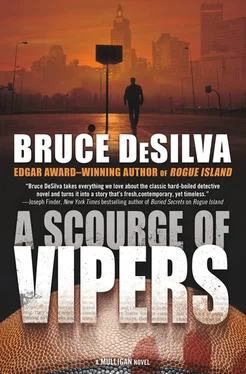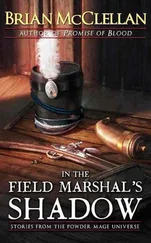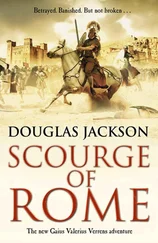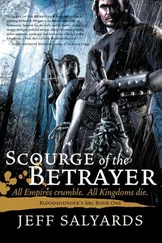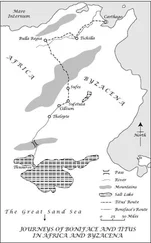Instead, I returned his phone and wallet, and he put them in his pockets.
“What about the Glock?” he asked.
“You’re joking, right?” Joseph said.
The guy turned to pluck his car keys from the hood, but I snatched them first and shoved them in my pocket.
* * *
“Whaddaya ’spose he was after?” Joseph asked as we cruised south toward the Newport waterfront.
“The people he works for must have been mad about my bribery story,” I said. “They probably asked him to find out what I’m going to do next.”
“What are you gonna do next?”
“We’re doing it,” I said.
In Newport, we stumbled on another new legislative campaign office, this one paid for by the super PAC working for privatization of sports gambling. After we talked up the staff and walked out with more fliers and lawn signs, I told Joseph to take the wheel and head west.
As he drove across the majestic Claiborne Pell Bridge, I asked him to hand me the Glock. I slid my window down and tossed both the gun and Alfano number three’s car keys over the railing into Narragansett Bay’s East Passage. Then I pulled the cell out of my pocket and called Judy at The Atlantic City Press.
“Hey, Mulligan. What’s up?”
“There’s another Alfano in town.”
“Which one?”
“How many are there?”
“Two more brothers and maybe a dozen uncles and cousins.”
“All of them connected?”
“That’s what I hear.”
“Is Marco Alfano one of them?”
“Another brother.”
“According to his driver’s license, he’s from Somers Point, New Jersey. Where’s that?”
“Just south of Atlantic City. How the heck did you get a look at his driver’s license?”
“By asking politely. So what does Marco Alfano do for a living?”
“Other than help out with the illegal family business?”
“Yeah. Other than that.”
“He owns a chain of escort services.”
“So he’s a pimp.”
“He is, but in Atlantic City you don’t get arrested for that. You get a plaque from the chamber of commerce.”
“I’ve heard.”
“So what was he doing in Rhode Island?” she asked.
“Tailing me. Probably will be again once he figures out how to start his SUV without his car keys.”
She chuckled at that. “Why? Because of the story you wrote?”
“That’s how I figure it. Probably wants to find out what I’m up to now.”
“Think he’s also spreading money around?”
“Wouldn’t surprise me.”
“He might also have a personal reason for being in Rhode Island,” she said.
“Because Mario Zerilli probably killed his brother?”
“Yeah. The Alfanos aren’t the kind to leave something like that to the authorities.”
“If he wants Mario,” I said, “he’ll have to get in line.”
After we hung up, Joseph gave me a nudge.
“I think we picked up another tail.”
I glanced in the side mirror.
“Where?”
“Four car lengths back. The gray Honda Civic.”
It followed us for a dozen miles, but when we turned north on Route 1, it peeled off.
I fetched my laptop from the backseat and used a reverse directory to check the phone numbers from Marco Alfano’s cell. Three of them were New Jersey landlines belonging to women who shared his last name, probably a wife and daughters. One was the number for Party Hearty Escorts in Atlantic City. The other six were unlisted. Probably more untraceable burners. When I called them, each was answered by a male voice that said, “Yeah?” When I asked who was speaking, they said, “Fuck you,” and clicked off.
It was still light, but well past Joseph’s dinner hour, by the time we rolled into Central Falls and decided to call our tour to a halt. We’d cruised through nineteen of the state’s thirty-nine cities and towns and found freshly opened, super-PAC-run legislative campaign offices in twelve of them.
On the drive back home, Joseph grumbled every time I passed a fast food joint. As we approached Providence on I-95, I spotted another gray Honda Civic in my rearview. I told myself that it was the most common car on the road.
Still, it worried me.
Shortly before eight the next morning, I stepped off the newsroom elevator, turned to punch the clock, and couldn’t find my time card. I strode to Twisdale’s office to complain, but first I wanted to fill him in on what I’d learned during yesterday’s tour of the state.
“Super PACs have started pouring a ton of money into the House and Senate races,” I said as I settled into the leather visitor’s chair. “By law, they have to report those expenditures to the Campaign Finance Division, so I should be able to get some hard numbers for you by the end of the week.”
Twisdale glowered.
“I’m surprised you had the gall to show up here this morning,” he said.
“Huh?”
“You’re fired.”
“I’m what ? Why? Because I called in sick again?”
“Like you don’t know. You’ve gone too far this time, Mulligan. You’ll never work in the news business again. Gather your personal belongings and get out.”
Puzzled and angry, I got up, stomped to my cubicle, and slumped into what used to be my chair. I rummaged through the desk and didn’t see anything worth taking home. Then I stood and took one last look around at the newsroom where I’d spent my entire working life.
It was here that I’d learned how to write, exposed corrupt judges and politicians with front-page headlines, and forged a handful of friendships that would last a lifetime. It was here that I’d discovered my calling as an investigative reporter-and where I’d learned most of what I know about life.
And death.
I’d seen the brains of shotgunned mobsters spattered on barroom walls, smelled putrefied cadavers pulled from polluted rivers, watched medical examiners paw through the remains of dismembered bodies, witnessed firemen carrying charred corpses from smoking ruins, and stared into the dead eyes of abused children. I’d been struck dumb by what remained of human beings who’d been run through wood chippers, crushed by automobiles, fed to pigs, and smashed in aircraft accidents. Once, I’d even stood on the Amtrak ties on the outskirts of the city as rescue workers plucked bits of a fifteen-year-old named Tommy Santos out of the trees minutes after he’d stumbled into the path of a speeding train.
Good times.
As I trudged to the elevator, Frieden approached, a pen and an open notebook in her hands.
“Mulligan?” she said, her voice a tentative whisper. “Twisdale assigned me to write the breaking story about you and the governor, and I was hoping you could give me a comment.”
A story about me and the governor?
“Sorry, Kate,” I said. “In my twenty-two years in the news business, I’ve learned one important lesson. Never talk to a reporter.”
The rest of the staff stared at me as I trudged to the elevator. Nobody said good-bye.
Outside, I stood at the curb for a moment and looked up at the red-brick newspaper building. Nearly fourteen feet above the sidewalk, a brass plaque marked the high-water mark of the flood that had inundated downtown Providence during the 1938 hurricane. Meteorology was a primitive science when that storm formed in the Atlantic, so it had slammed into the New England coast without warning. But why hadn’t I seen today’s storm coming?
I pulled the cell from my pocket and realized I hadn’t turned it back on since I shut the power off last night. There were two dozen new messages. Three from the governor insisted that I call her right away. A couple from McCracken and my buddy Mason at The Ocean State Rag asked if I was all right. The rest were from Iggy Rock and from reporters at the Associated Press, The Pawtucket Times , and the state’s TV affiliates, each of them asking me to call back with my comment on “the scandal.”
Читать дальше
